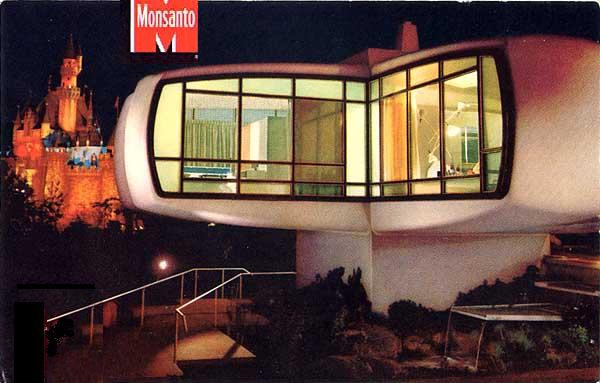How often do you see "It is a theme park / movie / television show / radio / novel / whatever, you're not supposed to think too much. Just turn off your brain and enjoy it."? All as though thinking is some awful, painful, misery inducing experience. This mindset is very powerful in our culture. It's not supposed to be the occasional respite, but the defining characteristic of popular culture.
To some degree I lament that today's culture is a culture where I think most people believe "intellectual stuff is boring." However, you have to realize we live in a world where we're constantly bombarded by "reality" in an unprecedented way. The internet and the media are inescapable, more now than at any time in history. And all of it comes at you with mostly the "bad" stuff, like war, turmoil, global crisis, climate change, etc, etc. It's hard to get away from it. So escapism becomes more important now than perhaps it ever was. Which is why I try not to get on people too much for not wanting to be asked to think. Yes, I wish people understood there are different types of "thinking", and that entertainment can make you think in ways that are positive and good, but I don't blame people for not wanting to contemplate their existence or reflect on themselves when they're being entertained. Sometimes you actually need something that's dumbed down. I'm guilty of it.
I'm actually assuming just the opposite. Walt wouldn't have built those exhibits without the sponsors paying the full tab. Those attractions had free admission for the public. Walt made his money from the sponsors. When the money dried up, so did the exhibits. For example, when Kaiser decided to drop sponsorship of Hall of Aluminum Fame in 1960, that space stayed vacant until 1965 when Monsanto added Fashions and Fabrics Through the Ages to join their Hall of Chemistry exhibit. Walt was more than happy to provide advertising venues for most any company with deep enough pockets.
And Carousel of Progress, for example, was one big advert for GE when it was built for the World's Fair. GE was willing to foot the bill for it to be moved into Disneyland and continue sponsorship, or that ride would be long forgotten. Heck, Walt plopped a giant plastic house right next to Sleeping Beauty Castle because Monsanto was willing to pay for the prime real estate. Imagine if today WDW decided to build Google's House of Chrome right next to Cinderella castle.
Sleeping Beauty Castle was originally just going to be a generic fairy tale castle, until it was realized that it was primed for an IP tie-in to help promote the upcoming Sleeping Beauty animated feature.
Nostalgia and the passage of time are great at sugar-coating history. There are very few people around here who were adults when Walt built Disneyland. Most of us were either not born yet or were still children, so we have the disadvantage of not being wise to the contemporary economics of Disneyland in 1955. And most of those who visited the park back then were only children, and are naturally going to remember the place as far less of a commercial endeavor than it really was. Not that Walt wasn't a dreamer, because he was, but he was also a salesman.
I've quoted this article several times, probably at least once in this thread, but it bears repeating again:
http://academic.csuohio.edu/tah/rrr/docs/marling_ch3.pdf
"Walt's dream is a nightmare," wrote one particularly disillusioned member of the fourth estate. "To me [the park] felt like a giant cash register, clicking and clanging, as creatures of Disney magic came tumbling down from their lofty places in my daydreams." Other writers on assignment in the park agreed. To them, Disneyland was just another tourist trap-a bigger, pricier version of the Santa Claus villages and the seedy Storylands cast up by the postwar baby boom and the blandishments of the automobile industry. It was commercial, a roadside money machine, cynically exploiting the innocent dreams of childhood. On his second visit to the complex, a wire service reporter cornered Disney and asked him about his profit margin. Walt was furious. "We have to charge what we do because this Park cost a lot to build and maintain," he barked. "I have no government subsidy."
...
Writing for the Nation, the novelist Julian Halevy took exception to an enterprise that charged admission to visit ersatz
places masquerading as the Wild West or the Amazon Basin. At Disneyland, he argued, "the whole world . . . has been reduced to a sickening blend of cheap commercial formulas packaged to sell."
Disney 1955 and Disney 2015 aren't as different (in a commercial sense) as some people would like to believe. On the contrary, Disney as a whole has done a pretty amazing job of staying relevant in a very different culture (less naive, more skeptical) than Walt had at his disposal in the 50s and 60s. Those were simpler times, and it was a much easier task to convince people that you were making a product solely for the purpose of "spreading magic" ... that it had nothing to do with bottom lines. All you need to do is watch television shows from the 50s and 60s to see how much more sanitized and optimistic society and mainstream entertainment were back then.

